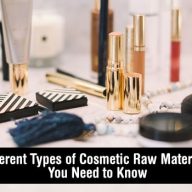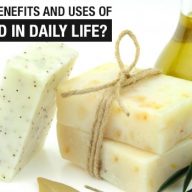Inorganic and Organic UV Filters for Sun Protection

A comparative overview of Inorganic and Organic UV filters
The organic and inorganic UV filters depends on individual preferences, skin type, and specific needs regarding sunscreen protection and cosmetic appearance. Two types of sun protection agents help consumers and formulators make informed decisions based on safety, efficacy, and environmental impact. Inorganic UV filters are favoured for their safety, stability, and environmental benefits, making them ideal for sensitive skin and eco-conscious consumers. Inorganic UV filters are favored for their broad-spectrum protection, stability, and suitability for sensitive skin, but may be less aesthetically pleasing due to their texture and potential white cast. Organic UV filters offer more cosmetically elegant formulations. Inorganic and Organic UV filters ultimately depend on individual needs, preferences, and priorities, including skin type, environmental considerations, and desired aesthetic outcomes.
Inorganic UV filters
Inorganic UV filters are ingredients derived from naturally occurring mineral sources that protect the skin from harmful ultraviolet (UV) radiation. Inorganic UV filters, also known as physical or mineral filters, such as zinc oxide and titanium dioxide, are highly effective options for sun protection, offering broad-spectrum coverage with minimal irritation or environmental impact.
- Zinc Oxide (ZnO): Zinc oxide forms a protective barrier on the skin’s surface, reflecting and scattering both UVA and UVB rays. It is also known for its soothing properties, making it a good choice for those with skin conditions like rosacea or eczema.
- Titanium Dioxide (TiO2): Titanium dioxide primarily protects against UVB rays, which are responsible for sunburn, but also offers partial protection against UVA rays. It is also non-comedogenic and provides a lighter, more transparent finish compared to zinc oxide.
- Nano Zinc Oxide: Nano Zinc Oxide provides broad-spectrum UV protection, effectively blocking both UVA and UVB. The nano-sized particles of zinc oxide offer a transparent finish, allowing it to be used in lightweight, non-whitening sunscreen formulas while retaining its protective properties. Its long history of safe use and research on nanomaterial safety ensures that it provides excellent sun protection without posing a health risk.
Inorganic UV filters are important for sun protection due to their safety, effectiveness, and environmental benefits. People who spend significant time outdoors or have a regular skincare regimen can benefit from the consistent and reliable protection that Inorganic filters offer.
Organic UV Filters
Organic UV filters are man-made chemical compounds designed to protect the skin from the harmful effects of ultraviolet (UV) radiation. UV filters are widely used in sunscreens and other sun-protection products due to their effectiveness, versatility, and ability to create lightweight, cosmetically elegant formulations. Organic UV filters are essential components of modern sunscreens, offering effective, broad-spectrum protection against the harmful effects of UV radiation. Organic UV filters, also known as chemical filters, absorb UV radiation and convert it into a small amount of heat, which is then dissipated from the skin.
- Avobenzone: Avobenzone is a broad-spectrum UV filter that absorbs UVA rays, which are responsible for premature skin aging and long-term skin damage. It is used in a variety of sunscreens, including those designed for everyday wear.
- Octocrylene: Octocrylene absorbs UVB and short-wave UVA rays, preventing sunburn and DNA damage in the skin. The filter is valued for its lightweight texture and ease of formulation, making it a popular choice in sunscreens, moisturizers with SPF, and makeup products.
- Oxybenzone: Oxybenzone absorbs both UVA and UVB rays, offering broad-spectrum protection. It is often used in combination with other UV filters to achieve effective sun protection.
Organic UV filters can be easily incorporated into a wide range of cosmetic products, including lotions, creams, gels, and sprays, making them versatile and convenient for consumers.
Advantages and Disadvantages of Inorganic and Organic Sunscreen Agents
Consumers often choose sun protection, and face the decision between Inorganic and Organic sunscreen agents. Both have their advantages and limitations, depending on factors like efficacy, skin compatibility, environmental impact, and personal preferences.
- Inorganic agents, such as zinc oxide and titanium dioxide, offer broad-spectrum, photostable, and environmentally friendly protection. Organic agents provide invisible coverage that is cosmetically appealing but may require more frequent application.
- Inorganic sunscreens, with their physical blocking capabilities and minimal environmental impact, are ideal for sensitive skin and eco-conscious consumers. However, Organic sunscreens offer lightweight, invisible protection. Ultimately, a combination of both types, tailored to specific situations and skin types, may offer the best sun protection strategy.
Sunscreen agents are critical for protecting the skin from harmful UV radiation, but the choice between inorganic and organic sunscreens often depends on individual preferences, skin type, and environmental considerations. A balance of both types can often provide optimal protection depending on individual needs.
UV Filters Manufacturers
UV filters are crucial components in sunscreens, personal care products, and various industrial applications. Several manufacturers around the world specialize in producing both Inorganic and Organic UV filters, offering a wide range of products to meet diverse needs.
- Chemspec is one of the largest manufacturers of sunscreen ingredients worldwide. Chemspec products are widely used by leading brands in the personal care and cosmetics industries, offering reliable protection against harmful UV radiation.
- Silox India combines technical innovation and the discerning needs of customers to deliver best-in-class Inorganic Chemicals for a wide range of end-use segments.
- Heubach reputations as a leader in inorganic UV filter production. Heubach inorganic UV filters primarily composed of minerals like zinc oxide and titanium dioxide provide broad-spectrum protection against both UVA and UVB rays.
The Bansal Trading Company strong bond with Silox India, Chemspec and Heubach leadership in the sunscreen ingredient market is driven by its dedication to quality, innovation, and global distribution capabilities, making it a trusted partner for formulators and brands seeking reliable sun protection solutions.
Also Read: Heubach and Clariant range of pigments
Inorganic and Organic UV Filters Distributors and Suppliers
Bansal Trading Company is a distinguished leader in the distribution and supply of raw materials for inorganic and organic UV filters, catering to industries that produce sun protection and cosmetic products. We ensures that manufacturers in the personal care and cosmetics industries have access to a diverse range of UV filters that meet the highest industry standards.
Raw Materials of Inorganic and Organic UV Filters
The Bansal Trading Company collaborates with top manufacturers Chemspec to provide the best Raw Materials for UV filters. The Company ensures that manufacturers in the personal care and cosmetics industries have access to a diverse range of UV filters that meet the highest industry standards.
- CHEM-1789: CHEM-1789 is a widely used organic compound in the formulation of sunscreen products. Avobenzone (CHEM-1789) is valued for its ability to protect the skin from the damaging effects of UVA rays, making it a vital component in comprehensive sun care formulations.
- CHEMSOL HS: Chemsol HS is a broad-spectrum UVB filter. Appearance is white to half-white powder. It facilitates good incorporation into high SPF skincare and sunscreen products where a light, non-greasy feel is required.
- CHEM L 150: Chem L 150 is white to light yellow powder. Ethylhexyl triazone is an organic compound used in sunscreens to absorb UVB radiation.
- CHEM DHBT: Chem DHBT acts as a UVA and UVB filter. Appearance is white to light yellow powder.
- OMCX: OMCX is a pale yellow oily liquid that absorbs UVB rays and protects the skin from damage. It is being used in a wide range of cosmetic products to provide an appropriate Sun Protection Factor (SPF) in sunscreens or to protect cosmetics against UV radiation.
- CHEM OCR: It has excellent photostability, and it is capable of stabilizing photo-unstable UV filters.
- CHEM HMS: Homosalate is an oil-soluble chemical sun-blocking agent suitable for use in formulations of high-SPF sunscreen products.
- Chem OS: SPF enhancing UVB filter as well improves solubilising of other solid UV filters like Avobenzone & EHT.
- CHEM S: Compatible with organic and inorganic filters, meets high safety requirements, and is oil soluble for high water resistance It is commonly used in products like sunscreens, lotions, creams, and sprays to provide effective sun protection.
Bansal Trading Company is a leading distributor and supplier of high-quality raw materials, specializing in both Inorganic and Organic UV filters. We stand out as a premier Distributor and Supplier of Raw Materials for Inorganic and Organic UV Filters. The company offers many products like CHEM-1789, CHEMSOL HS, CHEM L 150, CHEM DHBT, OMCX, CHEM OCR, CHEM HMS, CHEM OS, and CHEM S.
BTC_WEB_ADMIN






